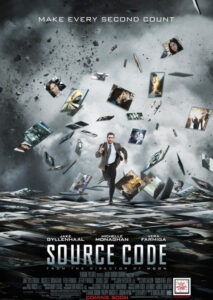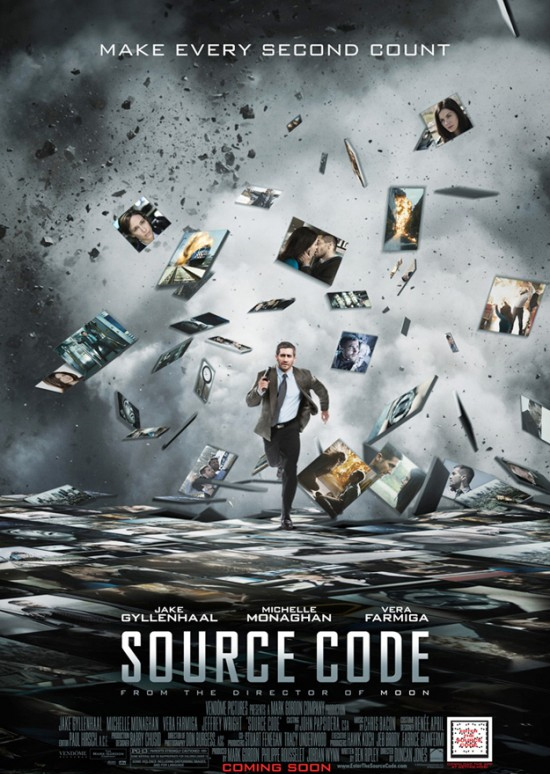
 “Source Code” is a unique time travel movie that posits the question: if you only had less than 8 minutes to live, what would you do with those minutes? Coulter Stevens aims to do a lot with that time—fall in love and even save a city from a terrorist.
“Source Code” is a unique time travel movie that posits the question: if you only had less than 8 minutes to live, what would you do with those minutes? Coulter Stevens aims to do a lot with that time—fall in love and even save a city from a terrorist.
The ambitious and sharp “Source Code” isn’t the movie you think it is. Sure, there’s action and there’s romantic chemistry as Jake Gyllenhaal bats his eyes at Michelle Monaghan. But it’s a movie that plays with reality intelligently with “Inception” like skill. And while it doesn’t have the same epic gravitas that marked “Inception” as one of 2010’s best films, “Source Code” is arguably a tighter and more efficient movie that could play better to a mass audience.
In “Code,” a soldier, Colter Stevens (Jake Gyllenhaal), wakes up finding himself literally implanted into the body of someone else while riding on a doomed train. The train is doomed to explode in less than 8 minutes. His job isn’t necessarily to disarm the bomb and save the passengers but, rather, to find clues leading to the identity of the bomber. Because, you see, the train Colter’s on has already exploded—it happened in the past and Colter is reliving those events in what feels like a very concrete reality.
While he’s on the train, Colter meets Christina (Michelle Monaghan). Apparently, the body Colter is inhabiting knows this attractive woman but the two are not romantically involved. Of course, Colter finds himself drawn to her. Could she hold the key to this unraveling mystery? He fails to get the necessary answers in the first 8 minutes. No matter, something called the “source code” can be re-explored with the punch of a computer button back at headquarters. Colter better buckle his seatbelt, he’s in for a rough ride through multiple virtual realities.
“Source Code” comes to us from director Duncan Jones, who last delivered the intellectual science fiction film “Moon.” That carefully constructed movie took place on the title floating orb and had Sam Rockwell battling multiple versions of himself. Like “Source Code,” “Moon” raised questions in a different way about the nature of reality. It left us in a quandary spurring dense discussions thereafter. While “Source Code” is much more action driven and will please a wider audience, both films share a clever intellect that is refreshing. Honestly, when I watched the trailer for “Code,” I feared that Hollywood had gotten to Jones and he had made yet another action driven summer popcorn flick. But thankfully, that’s not so, and “Source Code” is a slick, exciting, efficient film worthy of praise.
But what to do with those fleeting 8 minutes? In our reality it is but 480 seconds. And not many of us could do much during that time. But as Colter Stevens learns, in the “Source Code” 8 minutes can be a lifetime.

